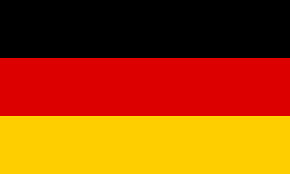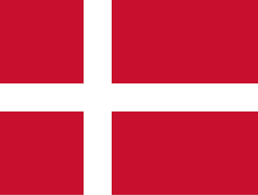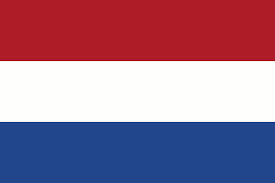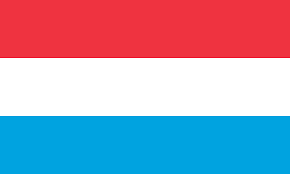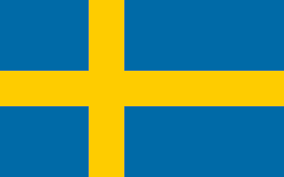CONCLUSIONS FOR ALL VICTIMS!
MAKE TRUTH AND RECONCILIATION COMMISSION 3
JOINT STATEMENT
367 adoptees submitted petitions to the Truth and Reconciliation Commission of Korea, requesting investigations into their own adoptions.
To date, only 56 cases have been concluded, leaving 311 adoptees still waiting for answers.
The greatest problem faced by adoptees is that they were adopted on the basis of false and fabricated documents.
Many adoptees possess very few – or no – records about their true background and origins.
Do not make this the adoptees’ problem!
The lack of documents and background information is, in itself, a violation of fundamental human rights!
The absence of documentation proving that adoptees were legally brought into the adoption system is, in itself, a breach of fundamental human rights!
It is not the responsibility of adoptees to prove the legality of their adoptions! That burden lies with the adoption agencies and the Korean state!
That is how the rule of law works! That is how international law works!
That is why we say, together: All 367 adoptees have the right to an answer! All 367 adoptees have the right to their truth!
The current mandate of the Truth and Reconciliation Commission is time-limited, and we are concerned there will not be enough time to conclude the remaining cases.
Therefore, we say: If all 367 adoptees cannot receive answers within the current mandate, then a third Truth and Reconciliation Commission must and shall be established as soon as possible!
Read the English press release here:
WATCH THE ADOPTEES' REACTIONS!
- The eyes of the world are on the Truth and Reconciliation Commission in anticipation of conclusions for all
STATEMENT FROM THE DANISH KOREAN RIGHTS GROUP (DKRG)
We are the Danish Korean Rights Group in Denmark.
We thank the Truth and Reconciliation Commission for your partial decision on March 26, where the conclusion is in all cases that human rights and the Korean Constitution have been violated.
However, we are very concerned about the information we have received about uncertainty in relation to the remaining 311 cases. It is therefore crucial for us to emphasize that:
● No cases may be dismissed without a decision! The Commission can and must ensure that all 367 individual cases receive a final decision!
● It must not be the adoptees' own responsibility to bear the burden of proof!
● Adoptees cannot be held responsible for providing documentation that is withheld from us.
● We urge the Commission not to hide the truth for us. For legal certainty and for the sake of justice, it is absolutely crucial that all 367 cases are investigated and decided. If it does not happen, we will look at this very seriously and with deep grief that the work in the Commission for the last 2 years and 7 months is not being followed through. We will consider it as another violation of our rights.
On behalf of the Danish Korean Rights Group Anja Kaer Kold, Master of Law
STATEMENT FROM KATRINE DAUGAARD, member of Danish Parliament and Vice Chairman of the Parliament Social Committee
"My name is Katrine Daugaard. I am the Deputy Chairwoman of the Social Board and a member of the Danish Parliament. Dear Truth and Reconciliation Commission, Dear Korea, It is absolutely imperative that you complete the crucial work you have committed to—ensuring a thorough investigation and delivering a final decision on all the nearly 400 cases under review. I sincerely hope you will see this process through to the end, allowing Danish authorities to follow up on our side and continue the necessary investigations from here."
STATEMEN FROM KLAUS JOSEFSEN, External Lecturer in Administrative Law and attorney at law
"My name is Klaus Josefsen – I am an external lecturer at Aarhus University in administrative law, and I also work as a lawyer in my daily life. For a number of years, I have been deeply involved in the field of adoption, including adoptions from South Korea in particular. I have, of course, also followed the very interesting work being carried out by the South Korean Truth and Reconciliation Commission, including the most recent interim report published regarding the investigation of the 367 cases.
I understand that conclusions have been reached in 56 out of the 367 cases, meaning these cases have been substantively reviewed, and it has been concluded that the rights of the individuals involved in these adoptions were violated—that is, the state’s obligation to protect them was not upheld.
I also understand that there are plans to dismiss the remaining cases. I find this very unfortunate, as I believe that all cases should be reviewed substantively and that conclusions should be reached in every single case. If this does not happen, I do not believe the commission will achieve what it was set out to do—namely, to uncover the truth and foster reconciliation."
STATEMEN FROM DANISH ADOPTEE AHN ANDERSEN
STATEMENT FROM AUSTRALIA-UNITED STATES KOREAN RIGHTS GROUP (AUSKRG)
AUSKRG Video Statement - 6 April 2025
Ryan Gustafsson, AUSKRG rep., Jessica Walton, AUSKRG, Hana Crisp, Che Stevenson and Alycia
The Australia US Korean Rights Group acknowledges the interim findings from the TRC, that the state bears responsibility for the Korean overseas adoption program. This program has involved systemic and “serious violations of the rights of adoptees.” This is a historically significant moment, with implications well beyond Korea - but it is only the start.
After a 2-yr and 7-month investigation, and a long wait on behalf of adoptees and our families, we note that only 56 of the 367 cases have been concluded thus far. All applicants are seeking the truth about their adoptions, and have put a great deal of time, energy, and resources into their involvement in this multi-year process.
Today we are speaking to you from Melbourne Australia, alongside our supporters and fellow AUSKRG members living in Sydney and Newcastle, Seoul, Los Angeles, and San Francisco. We call on the TRC to finish their investigation and conclude the remaining 311 cases.
The AUSKRG also urges the TRC to treat lack of documents as a violation in itself - after all, it is the Korean authorities’ responsibility to ensure adoption processes were legal and provide documentation to prove it. The burden of proof lies with the Korean state.
The AUSKRG stands with the other Korean rights groups and adoptee communities globally, and requests that the TRC concludes the truth-finding phase so that reconciliation may begin.
STATEMENT FROM CAFE - CRITICAL ADOPTEES FRONT EUROPE
We are 3 of the 17 Belgian Korean adoptees who submitted a request with the Truth and Reconcilliation Commission to investigate adoptins from South Korea.
We request the commission to investigate all 367 files submitted by Korean adoptees from all around the world before the deadline of May 31 so the truth can be unveiled for all adoptees.
STATEMENT OF THE NETHERLANDS KOREAN RIGHTS GROUP
Dear TRC, the lack of documents is not equal to the lack of evidence.
Accept all cases, from the Netherlands.
The NLKRG acknowledges the general conclusions on the responsibility of the state
and the first 56 cases that the TRC reported. This is historical and reaches far beyond Korea's borders.
We require the TRC to finalize their research
and provide conclusions to the other 367 TRC participants. TRC, the burden of proof must be with the State and not with the victims.
STATEMENT OF THE FRANCOPHILE KOREAN RIGHTS GROUP (FKRG)
STATEMENT OF THE NORWEGIAN KOREAN RIGHTS GROUP (NKRG)
My name is Vigdis Eckhardt, and I am the Chair of the Norwegian Korean Rights Group – NKRG.
Today, I stand here on behalf of the thousands of adoptees who, for years, have fought for the truth about our own lives.
Imagine not knowing who you truly are. Imagine a life story hidden behind secrecy and forged documents. Imagine that an adoption agency holds the truth about your identity. For us, this is not a theoretical scenario – it is our harsh and lived reality.
At long last, the Korean Truth and Reconciliation Commission (TRC) has confirmed what we have long known: the Korean state failed in its duty to safeguard our most basic human rights. This is not about isolated incidents – it is about a system that failed the most vulnerable among us: children.
We are deeply grateful for the Commission’s thorough investigation of the initial cases. But this is only the beginning.
Still today, 311 adoptees are waiting for their cases to be reviewed. We have waited far too long – many of us have spent an entire lifetime in uncertainty. We now demand action.
The TRC must complete its investigations and provide the answers we are entitled to. It is no longer our responsibility to prove that our adoptions were illegal or unethical. That responsibility now lies with the Korean state, which must demonstrate that it acted lawfully and ethically.
How are we – victims of institutional and state failure – supposed to prove we are victims, when we are denied access to our own records? The absence of documentation is itself a violation of our human rights. It is an additional burden – a further betrayal that we should not have to endure.
We demand answers. We demand to know who we are, and what happened to us. The Korean state and the TRC must prove that no violations of human rights or the Korean Constitution occurred. If they cannot, then we are once again made victims – this time of continued uncertainty and institutional neglect.
To all those watching or listening: we ask you to stand with us. Share our appeal. Demand transparency and justice in every adoption case.
We deserve the truth. We deserve accountability. Together, let us ensure that no child, and no parent, ever has to experience this injustice again.
We have the right to know our own story.
Thank you for listening.
감사합니다!
STATEMENT OF UNITED STATES KOREAN RIGHTS GROUP (USKRG)
STATEMENT OF THE SWEDISH KOREAN ADOPTEES' NETWORK (SKAN)
My name is Hanna Sofia Jeong Johansson. I was adopted from South Korea to Sweden in 1976, when I was about four months old.
Today, I am standing here in Stockholm, Sweden, together with a group of people who are all affected by intercountry adoption:
-
Fatima– adopted from South Korea
-
Johan– Fatima’s partner
-
Klara-Lee– Fatima and Johan’s daughter – behind the camera
-
Tuva-Yo– Fatima and Johan’s daughter – behind the camera
-
Bonnie– adopted from Chile
-
Molly– adopted from India
We would like to extend our sincere thanks to the Truth and Reconciliation Commission of Korea (TRC) for accepting the 367 cases concerning alleged violations of human rights under the dictatorship, which we submitted almost three years ago.
We are pleased that, on 26 March 2025, the TRC concluded that the Korean state bears responsibility for the mass export of children that took place. To this day, no one knows how many Korean children were sent away for adoption. The TRC found that the Korean state failed to exercise adequate oversight over the adoption agencies, allowing them to take full control of our destinies. One of the reasons for this, according to the TRC, was that the agencies were under pressure to deliver a certain number of children for adoption each month in order to meet the demand from Western couples. The demand from the West far exceeded the number of Korean orphans available.
The TRC further concluded that South Korea has violated both its own constitution and the United Nations Convention on the Rights of the Child (UNCRC).
The TRC’s findings mark a historic moment, and their impact reaches far beyond Korea’s borders. The Swedish adoption commission, which is set to release its findings in June, waited for the TRC’s press release in order to include its conclusions in their forthcoming report.
Altogether, adoptee organisations in 11 countries submitted 367 cases concerning suspected human rights violations in relation to our adoptions. To date, the TRC has determined that the rights of 56 adoptees who reported their cases were violated.
22 cases from Sweden were submitted to the TRC. Of these, 21 were submitted by the Swedish Korean Adoptees’ Network (SKAN). I stand here today as the founder and coordinator of SKAN. In one of the 22 cases, the TRC concluded that the adopted person’s human rights had been violated. The remaining 21 cases are still awaiting investigation.
SKAN chairwoman Hanna Sofia Jeong Johansson speaks in front of the Embassy of South Korea in Stockholm, Sweden
Although we are grateful for the TRC’s important work, we are deeply disappointed that, after two years and seven months, 311 of the 367 cases remain uninvestigated.
Each case represents an individual adoptee – but also their Korean parents and siblings, their partners, children and friends – all of whom are affected.
In 42 cases, the TRC concluded that there was insufficient evidence to establish that the complainant’s human rights had been violated. We argue that it is the Korean state that should bear the burden of proof and demonstrate to all 367 of us that our rights were notviolated. That burden should not fall upon us, the victims. It is the Korean state and its investigative authorities who must prove that no violations of our human rights or of the Korean constitution have taken place. If they cannot, then we – the victims of unlawful practices, many of whom lack documentation – are once again victimised. Victims forced to continue living without knowledge of why we were adopted.
The legal documentation required for our adoptions included paperwork issued by Korean authorities. Therefore, it is the authorities’ responsibility to produce proof that each and every adoption was lawful. The inability to do so, in itself, constitutes a violation of international human rights conventions.
We urge the TRC to complete its work and investigate the remaining 311 cases – so that Korea does not fail us once again. In Chile, a similar inquiry was conducted, and criminal investigations are now underway. Korea would do well to take inspiration from Chile’s example.
The TRC’s work has drawn attention from the Swedish adoption commission. Similar investigations are ongoing in countries such as Norway and Belgium. There is clearly international interest in the work of the TRC.
From here in Stockholm, we call on the TRC to investigate all 367 cases and to fulfil its responsibility. Reconciliation can only happen once all of us have been told the truth about our adoptions.
Thank you.
Adoptee Lisa Woorim Sjoblom
STATEMENTS OF DOKADS - DESCENDANTS OF KOREAN ADOPTEES
WE STAND UNITED!
- 367 ADOPTEES FROM 11 COUNTRIES
CANADA
NORWAY
DENMARK
FRANCE
THE UNITED STATES OF AMERICA
THE NETHERLANDS
LUXEMBOURG
AUSTRALIA
GERMANY
SWEDEN
BELGIUM



.jpg?etag=%22db85-67f3ef4b%22&sourceContentType=image%2Fjpeg&ignoreAspectRatio&resize=493%2B212&extract=0%2B0%2B482%2B212&quality=85)
.jpg?etag=%22e637-67f3ef4d%22&sourceContentType=image%2Fjpeg&ignoreAspectRatio&resize=538%2B214&extract=0%2B0%2B503%2B214&quality=85)
.jpg?etag=%2213eba-67f3f3f8%22&sourceContentType=image%2Fjpeg&ignoreAspectRatio&resize=441%2B214&extract=0%2B0%2B423%2B214&quality=85)
.jpg?etag=%2210ef3-67f3f3fa%22&sourceContentType=image%2Fjpeg&ignoreAspectRatio&resize=516%2B220&extract=0%2B0%2B468%2B220&quality=85)
___serialized1.png?etag=%2238b2d-66ab2264%22&sourceContentType=image%2Fpng&ignoreAspectRatio&resize=195%2B200&extract=0%2B0%2B195%2B200)





_Left%20to%20Right_Helena%20Michalak,%20Ellie%20Freeman%20Kim_Beau%20Kent_Jessica%20Walton_Tom%20Schorel_Jenna%20Schorel.jpg?etag=%22299072-67f3dec8%22&sourceContentType=image%2Fjpeg&ignoreAspectRatio&resize=374%2B249&extract=0%2B0%2B366%2B249&quality=85)

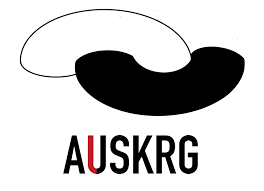

___serialized1.jpg?etag=%2255bc1-67f4105f%22&sourceContentType=image%2Fjpeg&ignoreAspectRatio&resize=281%2B196&extract=0%2B4%2B281%2B191&quality=85)

___serialized1.jpg?etag=%2274fac-67f4108b%22&sourceContentType=image%2Fjpeg&ignoreAspectRatio&resize=300%2B196&extract=0%2B0%2B300%2B191&quality=85)
.jpg?etag=%221426e-67f41107%22&sourceContentType=image%2Fjpeg&ignoreAspectRatio&resize=444%2B305&extract=0%2B0%2B438%2B305&quality=85)







.jpg?etag=%2214094-67f3f6e0%22&sourceContentType=image%2Fjpeg&ignoreAspectRatio&resize=438%2B305&extract=0%2B0%2B438%2B294&quality=85)
.jpg?etag=%221b716-67f3f67a%22&sourceContentType=image%2Fjpeg&ignoreAspectRatio&resize=438%2B305&extract=0%2B0%2B438%2B296&quality=85)

___serialized2.png?etag=%2211966-67f411ed%22&sourceContentType=image%2Fpng&ignoreAspectRatio&resize=249%2B253&extract=0%2B0%2B249%2B242)
.jpg?etag=%2214c6b-67f4000d%22&sourceContentType=image%2Fjpeg&ignoreAspectRatio&resize=438%2B305&extract=0%2B0%2B438%2B291&quality=85)








